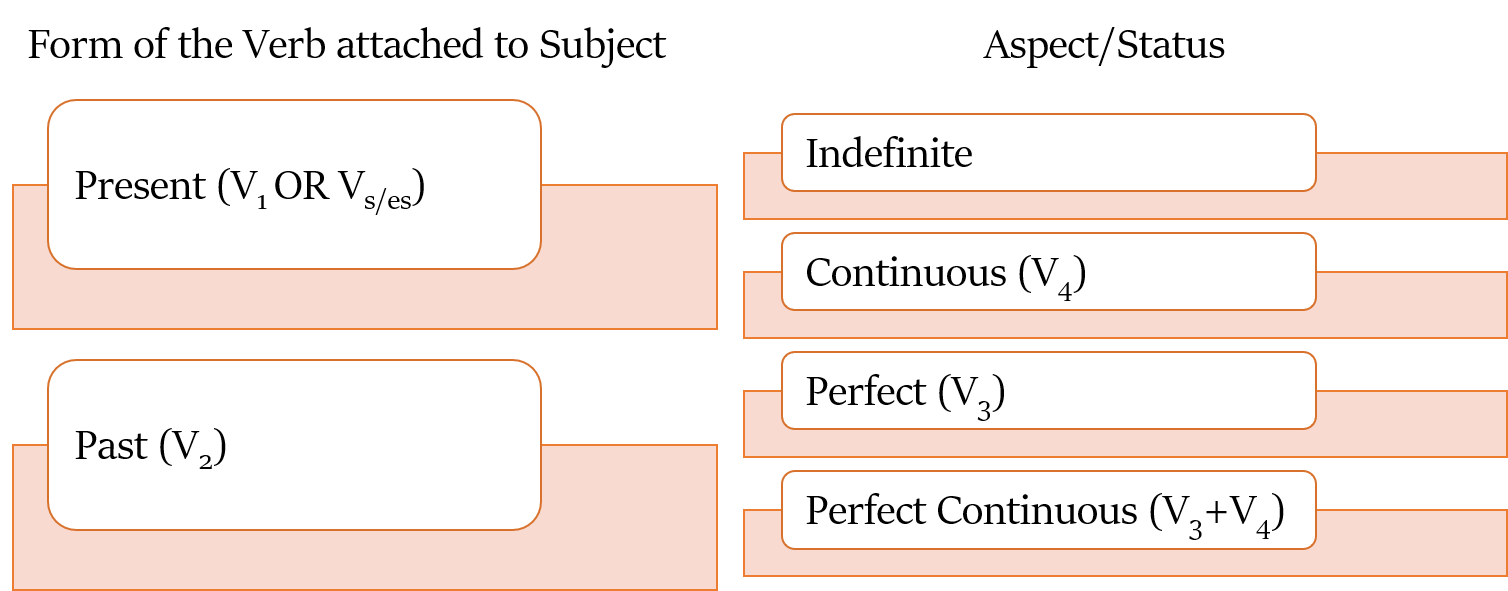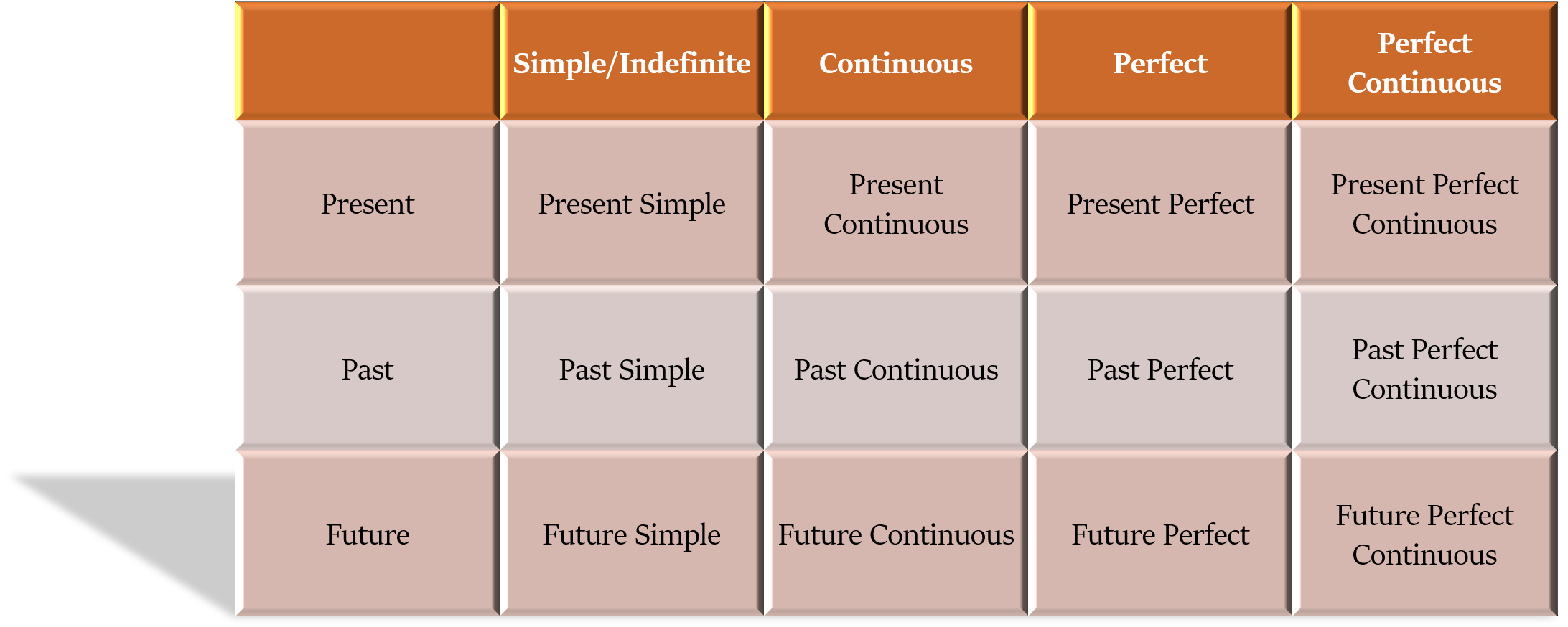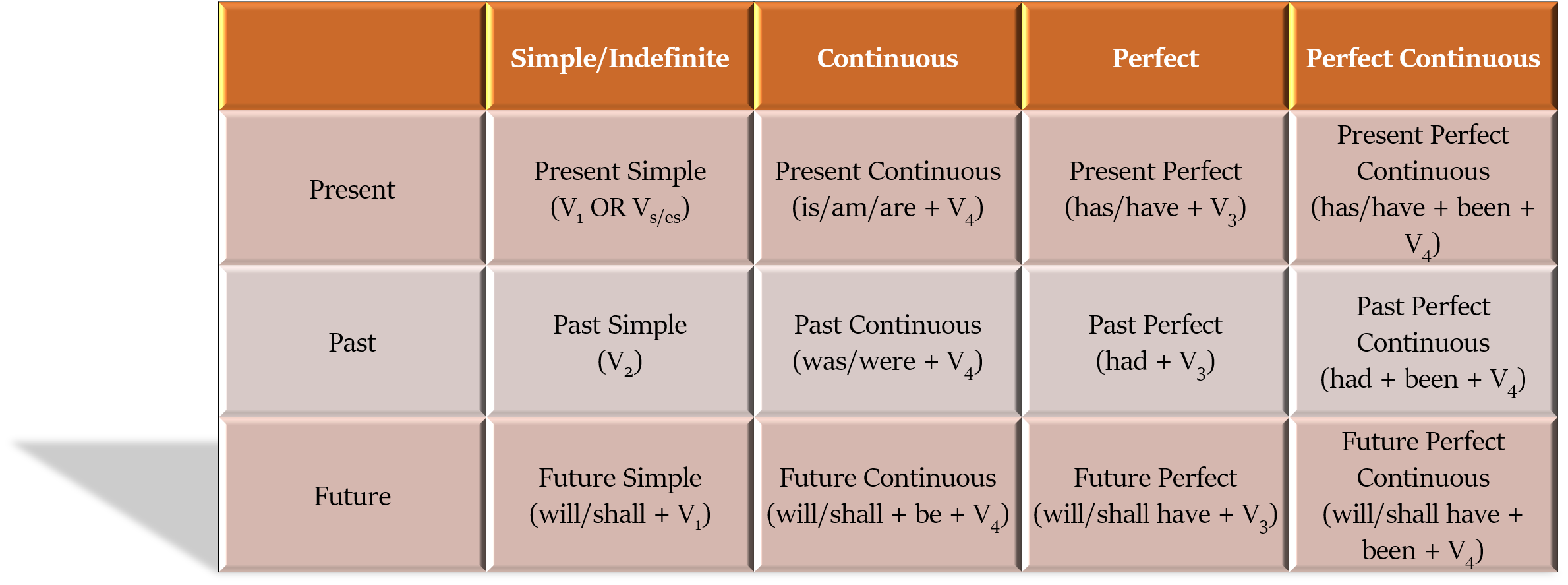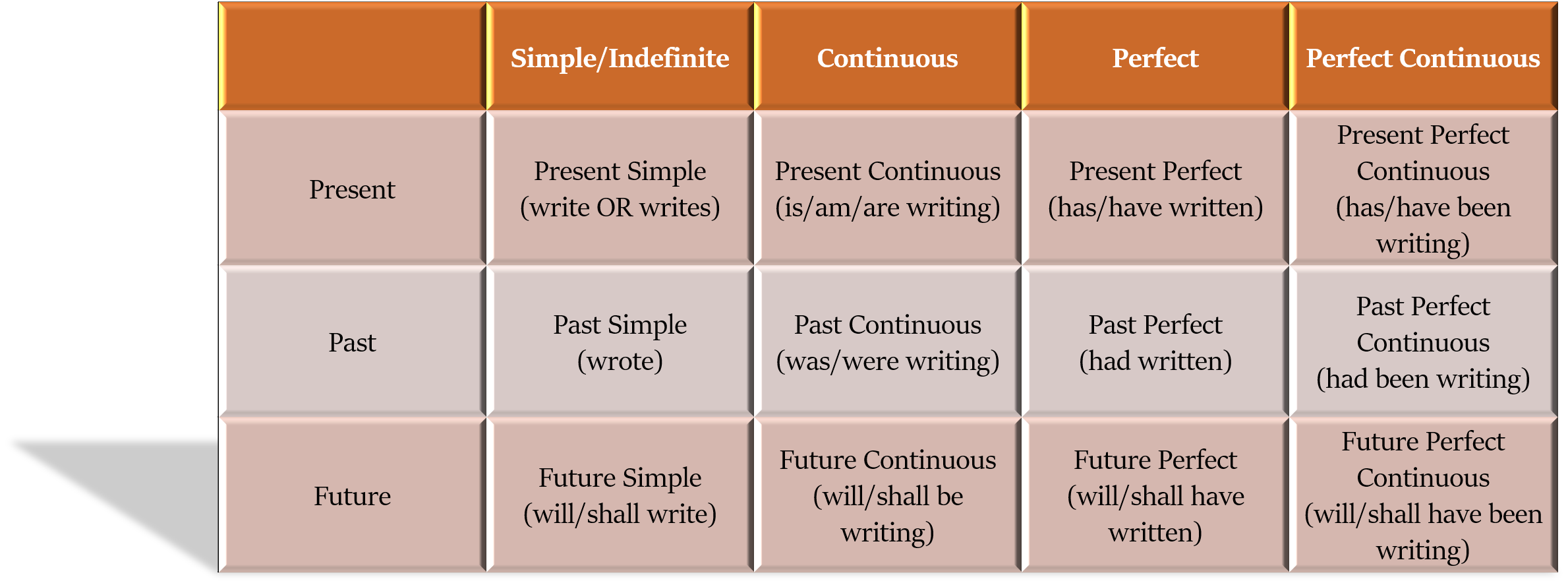Overview of Tenses
What is Tense?
Tense is a verb-based method used to indicate:
the time, and
sometimes the aspect/status of an action or state (i.e. complete or ongoing).
Any verb phrase can have these two components, which work together to denote a certain time (past, present or future):

We construct the Future tense using present and past tense forms of the verbs, e.g. will/shall +
Using these two components we get 12 tenses (3 × 4).

If you remember the five forms of verbs, then you may know that there are only two finite forms of verbs –
There is no future form of a verb. That’s why some experts consider will/shall modal verbs as present forms only.
It’s also because their past is would, should and we can make past only from the present and not from the future.
But, we do use will/shall to formulate future tenses. Just keep in mind that any verb that comes after will/shall will be in base form (i.e. will/shall +
Verb Forms and Tenses
Tense is a verb based method to indicate time.
In English Language only verbs can have tenses. Different forms of verbs are used to convey different tenses.

Examples:

Keep this in mind:
be +
has/have/had +
has/have/had + been (
be +
We will study active-passive voice in a separate module.
As per some experts there is no future tense in English, because there is no future form of a verb. We use some other constructs to make future tense, e.g. present tenses, going to, will/shall etc. Still we use the term future tense, just for our own convenience.
You will notice that most of the future tense forms are similar to present tense forms – we generally just add will/shall.
Some Caveats!
So, we talk about time and status of some action/state in English with tense. BUT!
one tense time form does not always talk about one time (for example, we can use the present tense form, or even the past tense form, to talk about the future time)
we can also talk about time without using tense, i.e. by using other formulations (for example, going to, to-infinitives, or by using words like tomorrow, yesterday, etc.)
Tense Vs. Time depicted
It is very easy to find out the aspect of a tense (i.e. whether it is indefinite, continuous, perfect or perfect continuous).
I am working on the Manhattan Project. (working –
I worked on the Manhattan Project. (worked –
But to find out what time a tense is denoting, we need to study:
- form of the verb attached to the subject (present form or past form)
- the aspect (indefinite, continuous, perfect or perfect continuous) and
- some other formulations too, e.g. infinitives, going to.

We usually use present tense verb forms to talk about present time and past tense for past time. But there are exceptions.
The present and past tense forms can be used to showcase all the three divisions of time (past, present and future).
There is no future tense form of verbs in English. To refer to future time we use present and past tenses or constructs like ‘be going to’ or ‘will/shall’.
We will see some of such examples in our next section given below.
Present Tenses denoting other times
Simple present tense denoting future time
PM leaves for China next week. (next week – denotes future time)
Present continuous tense denoting past time
The other day I am just walking down the street when suddenly a bird attacks me and hits me on the head. (the other day gives a clue that we are talking about past time)
Present continuous tense denoting future time
Sam is arriving this evening. (is arriving – present continuous tense; this evening denotes a future time)
Sometimes we use infinitives along with verb phrases to denote a specific time. For example we use these to denote future:
- be + to-infinitive – it is basically simple present tense + to-infinitive
- be + going + to-infinitive – it is basically present continuous tense + to-infinitive
be + to-infinitive
I am to work on the Manhattan Project. (verb form used: be + to +
be + about + (to-infinitive) can also be used for the immediate future. So, we can rewrite the above sentence as:
I am about to work on the Manhattan Project.
be + going + to-infinitive
Note the difference in the following two sentences:
I am going to the cinema tonight. (am going – present continuous tense; tonight denotes a future time; here ‘to’ is a preposition followed by a noun)
I am going to resign from my post. (verb form used: be + going + to +
Present perfect tense denoting past time:
She has gone. (has - the verb attached to the subject is in present tense, but the sentence is denoting past time, because gone is a past participle (
Past Tenses denoting other times
Simple past tense denoting present time
If I had some money now, I would have given it to you. (had – simple past, but now denotes that we are talking about the present)
Simple past tense denoting future time
Mr. Stark might meet you tomorrow. (tomorrow – denotes future time; so a word, which is not a part of verb phrase, can also denote time)
It would be better if we went home now.
Passive voice denoting past time
She is gone. (is - the verb attached to the subject is in present tense, but the sentence is denoting past time, because gone is a past participle (

Extra Books and Tools
If you prefer to learn via books, or want some good English Grammar books for reference purposes, you may read this article which enlists some of the books recommended by us.